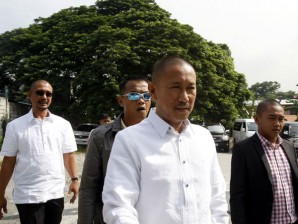Maguindanao gives aid to ‘Pablo’ victims despite own flooding problem
COTABATO CITY—Even as it deals with displacements caused by floods spawned by Typhoon “Pablo”, Maguindanao has donated food, clothes and medicines to Davao Oriental, one of the hardest-hit areas in southern Mindanao.
At least 600 families were displaced by floods caused by the overflowing of the Rio Grande de Mindanao and the Liguasan Marsh in Maguindanao, a few days after Pablo’s onslaught.
Maguindanao Gov. Esmael Mangudadatu said while some Maguindanao areas had been flooded, the suffering of affected residents paled in comparison to what the survivors in Davao Oriental have been experiencing such as “lack of food, water, clothes and medicines.”
“We can’t afford to see our neighbors, women and children homeless, sick and starving. That’s why, in our little way, from our meager resources, please bear with us with the prayer for their early recovery,” he said.
Mangudadatu said on Tuesday, the Maguindanao government sent 50 sacks of rice and 1,800 packs of used clothing to Davao Oriental to at least help alleviate the suffering of Typhoon victims there.
Article continues after this advertisement“This humanitarian gesture of the provincial government is a universal reciprocation to help one another in times of emergency,” he said.
Article continues after this advertisementMangudadatu said the provincial government also dispatched a medical mission to Cateel, Davao Oriental. He said the team brought along some 20 bottles of tetanus toxoid and other medicines.
“The typhoon victims there need much help, and whatever way we can, we have extended humbly our share to alleviate their suffering,” he said.
Mangudadatu said from the rice donation, a total of 700 families had been served. Each family received about four kilograms of rice and clothing.
Meanwhile, Mangudadatu said the evacuees in Maguindanao had been regularly receiving food aid and they would soon be returned to their villages as the floods had been subsiding already.
However, he said health workers would continue to monitor their situation to prevent illnesses from striking them.
